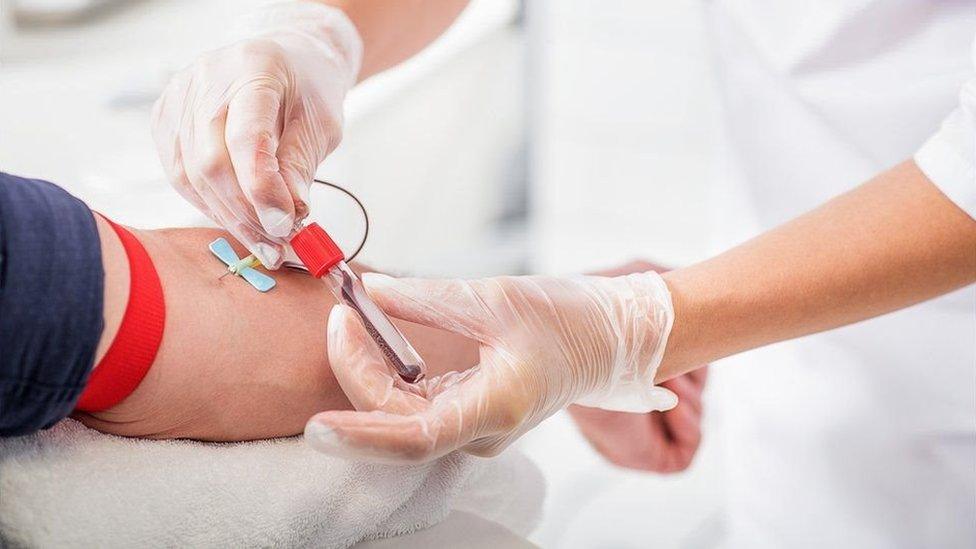Blood supplies in Northern Ireland at 'urgently low' level
- Published
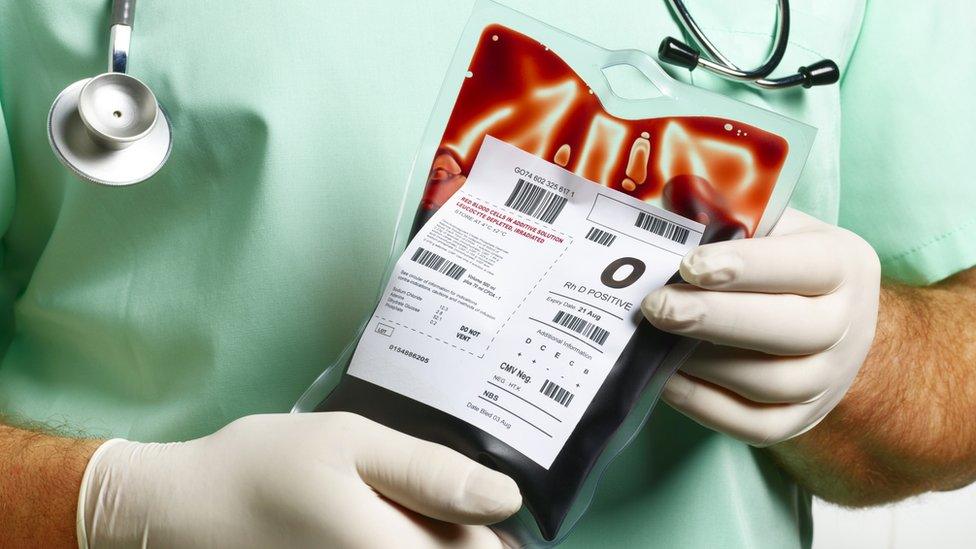
The Northern Ireland Blood Transfusion Service is urging the public to make emergency appointments for donations.
Stocks of O and A type blood are urgently low and an online booking system for previous donors has been launched.
Demand is rising as more hospitals catch up on the backlog of routine surgery after the Covid pandemic.
Matt Gillespie, from the transfusion service, says the situation is "very worrying".
The appeal comes as blood supplies in England have fallen to such a level that the service there has declared its first amber alert.
NHS Blood and Transplant (NHSBT) is warning that hospitals may have to postpone some elective surgery but say emergency care will not be affected.
Speaking to BBC's Evening Extra programme, Mr Gillespie said: "The UK and the Irish blood services work collaboratively and support each other in times of shortage so having the biggest player in the field, NHSBT, call an amber alert is very worrying."
The Northern Ireland Blood Transfusion Service (NIBTS) says its stock of blood groups O+, O-, A+ and A- is much lower than it would like and is showing a deteriorating position.
"This will be monitored closely over the coming weeks to establish if further action is required - including recommending that routine surgical procedures are cancelled," the service added.
NIBTS say they normally like to hold between five and seven days worth of blood stocks.
This had diminished to three-and-a-half days on Wednesday morning.
"The blood group that we're most concerned about is O+ and it's the most popular group - we're down to about two days worth of O+," Mr Gillespie added.
"We'll be working hard over the next few weeks to try and boost that."
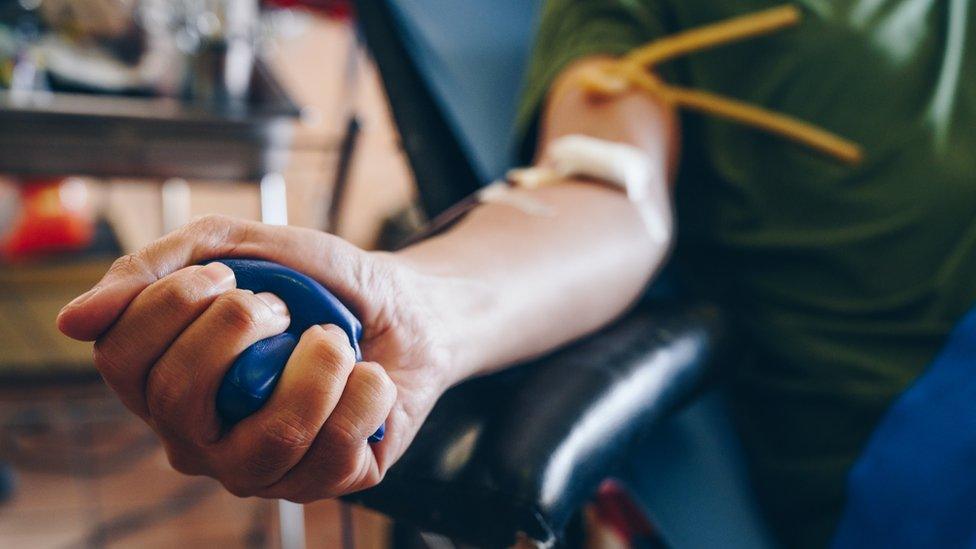
The service has launched an online appointment request system, external for previous donors.
NIBTS says a minimum of 12 weeks must pass between donations.
Men can donate four times over a 12-month-period and women can donate three times in the same timeframe.
The service added that the demand for blood was rising as more hospitals catch up on the backlog of routine activity that had been postponed due to the pandemic.
This is in addition to normal daily requirements for transfusions and emergency trauma situations.
Related topics
- Published12 October 2022
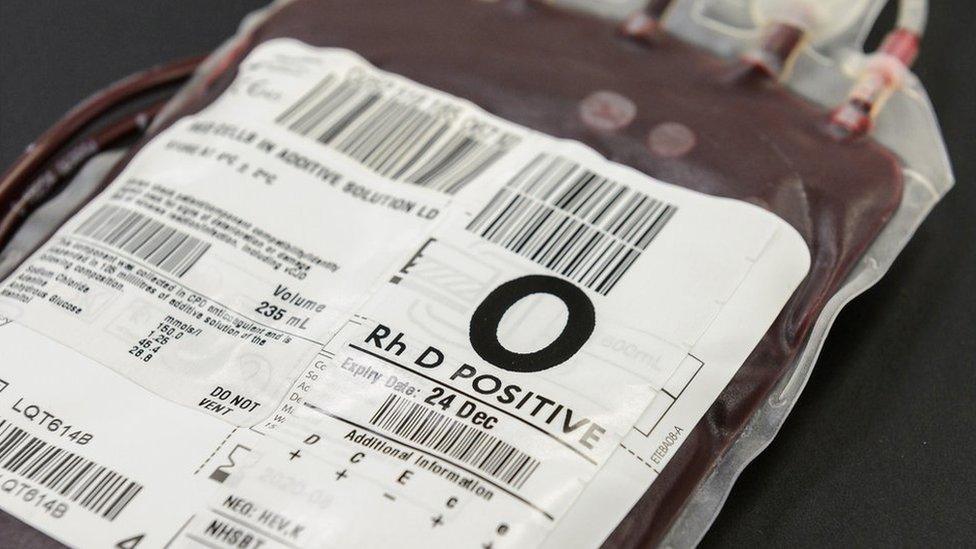
- Published10 January 2022
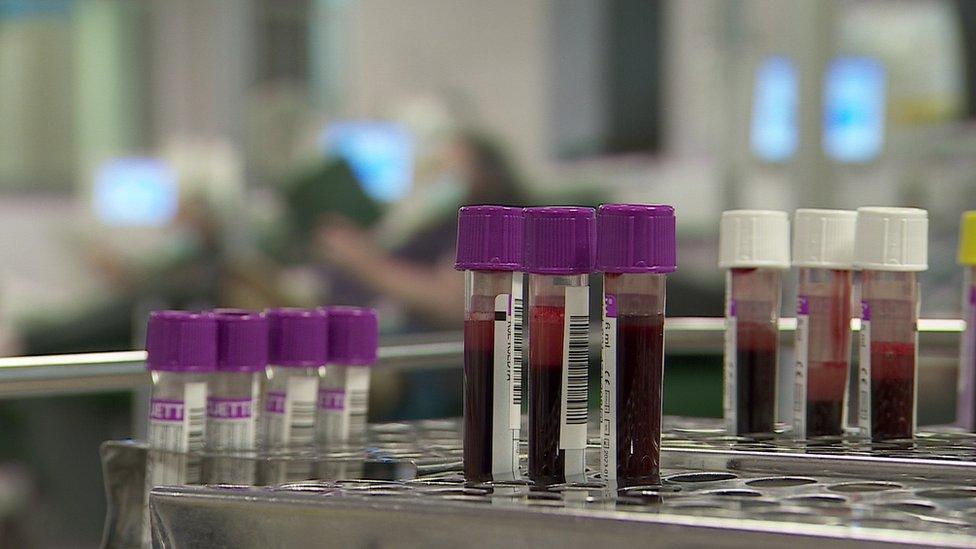
- Published12 August 2021
